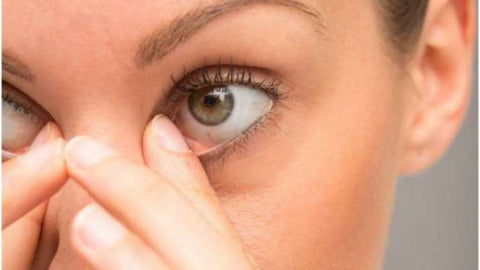Who is an Optician?

In the United Kingdom, the term 'optician' is informally defined as a person who works with all aspects of eye care. This includes individuals who fit contact lenses in a high-street retailer. Opticians used to make their own lenses. To save time and money, this is now generally outsourced to independent manufacturers.
An optician is defined as follows in the dictionary:
What does an optician do?
'A person who is eligible to prescribe and dispense eyeglasses as well as contact lenses, as well as diagnose and treat Eye problems (ophthalmic optician) or to end up making and supplying eyeglasses as well as contact lenses (dispensing optician).'
When should one visit an Optician?
Many common conditions can affect the eye, causing it to behave differently than usual. Most are harmless, and many will go away on their own, but keep in mind that your eyes are delicate, and in some circumstances, prompt treatment is required to avoid long-term vision damage.
Floaters
The presence of black specks in your eyesight could indicate retinal detachment, a dangerous eye ailment. If you're suffering from floaters and flashes across your vision, see your optician or go to the hospital right once to avoid permanent vision loss.
Weeping Eyes

Tear ducts that are blocked or irritated might produce excessive tear production. Tears are common in the eyes, but when they last for a long time and are excessive, they can be an indication of more serious sickness.
Blurred Vision

Cataracts, glaucoma, and macular degeneration can all cause sudden blurred vision, which should all be addressed as soon as possible to avoid long-term damage. Blurred vision might impact your complete eyesight or only parts of it, such as your peripheral vision.
Migraines & Severe Eye Pain

Severe eye discomfort, nausea, vomiting, and headaches are symptoms of ocular crises such as glaucoma. Because of the increased eye pressure and potential for optic nerve damage, it's critical to have an eye doctor diagnose and treat the problem as soon as possible.
Sudden Vision Loss
A rapid loss of vision can occur when your visual pathways are compromised, such as by retinal or nerve problems. This can damage one or both eyes, as well as part or all of your line of vision. This is just transient in some circumstances, but based on the source, the damage can be irreversible if not treated.
Differences In Your Eyes That Can Be Seen
Visible indicators of a change in your eye's state include dark pigmented spots on your iris, discolouration of the eyes, sagging eyelids, and more. To ascertain the reason of these changes and rule out any underlying medical conditions, an eye check and evaluation should be performed
Itchy eyes
When your eyes get irritated and itching, you'll try anything to reduce the discomfort. Knowing the source of your itchy eyes, on the other hand, might help you locate the correct remedy and comfort. It's crucial to understand the differences between allergy and infection symptoms, for example, so you don't aggravate your illness.
Squinting

Squinting is the act of pushing your eyes together in an effort to focus on the hazy pictures next to you. To gain a clear view, this limits the amount of additional light that now the eye receives and shrinks the size of an image. This quick treatment isn't a long-term solution to the problem of blurry vision. This is a good reason to have your eyes checked by an eye doctor, who may recommend a pair of glasses or contact lenses.
Diabetes

If you do have diabetes or if it occurs in your family, your doctor may have recommended that you see an eye specialist on a regular basis. Diabetic retinopathy, glaucoma, cataracts, and diabetic retinopathy are all caused by diabetes. These diseases can cause major vision damage, so it's always a good idea to visit your doctor on a frequent basis to keep any serious issues at bay.
Conclusion
Always pay attention to the clues that your eyes are sending you. With quick diagnosis and treatment, a variety of eye issues can be resolved. If any type of allergy persists over a period of time, see your doctor immediately once. The early indicators of a range of ailments, such as high blood pressure, diabetes, and excessive cholesterol levels, can be seen in the eyes, which can reveal a lot about your health. Regular eye exams can help you detect these issues early and take the required steps to avoid significant difficulties. A full eye exam is recommended once a year in general.



